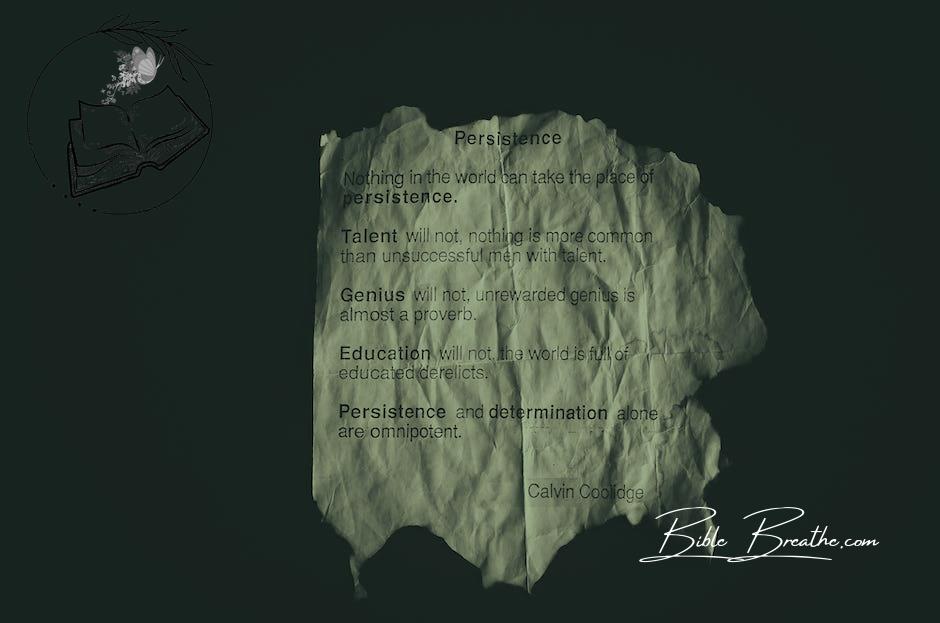How to Quote the Bible: Now, picture this, fam – you’re sipping your morning coffee, and you want to drop some biblical wisdom on your friends or family.
But wait, how do you quote the Bible right?
It’s like nailing the perfect slam dunk; precision is everything.
The Bible?
It’s not just a book; it’s your ultimate life playbook.
When you grab a verse, you’re tapping into divine power, so accuracy is a big deal.
So, we’re diving into the art of Bible quoting – think of it like crafting a beautiful piece of art.
We’ll get into the nitty-gritty of scripture citation and Bible referencing.
And remember, it’s not just about the words; it’s about the life-transforming message.
Quoting the Bible is like infusing your life with heaven’s wisdom.
Join me as we explore the world of Biblical verses, making sure every word you share shines with divine truth.
Let’s do this, fam!
🙌📖
Key Takeaways
- Accurate and respectful Bible quoting is of paramount importance when sharing scripture. Properly attributing verses, chapters, and translations ensures that the message is conveyed faithfully and maintains its intended meaning. Misquoting or taking verses out of context can lead to misunderstandings and misinterpretations.
- Bible verses hold significant influence and impact on both believers and non-believers. They offer guidance, solace, and inspiration to those seeking spiritual wisdom or comfort. Therefore, when quoting the Bible, it’s essential to consider the potential impact on the reader or listener, recognizing the power of these words.
- Those who share the word of God bear a responsibility to do so correctly. This entails not only accurate quoting but also an understanding of the context in which the verses were written. Recognizing the historical and cultural background of the Bible aids in conveying its message authentically.
- Utilizing proper citation methods and acknowledging the translation used when quoting the Bible contributes to transparency and trustworthiness in religious discussions. It allows readers and listeners to access the source material and delve deeper into their own interpretations and understanding.
- In conclusion, learning how to quote the Bible effectively involves more than just citing verses; it encompasses a profound respect for the scripture, an awareness of its impact, and a commitment to sharing the word of God with accuracy and responsibility.
Mastering the Art of Quoting the Bible
Photo modified by BibleBreathe.com. Original photo by Jacob Of Rugged Branch on Pexels
So, you’ve stumbled upon a powerful Bible verse, and you’re itching to share it with the world or keep it close to your heart.
But how do you effectively quote the Bible?
Don’t fret, my friends, because I’m here to walk you through this beautiful art.
Why We Quote the Bible
For a Boost of Courage and Inspiration
The Lord is my shepherd; I shall not want.” – Psalm 23:1 (KJV)
Imagine life as a rugged hike, full of challenging trails.
Sometimes, you need a hearty dose of inspiration.
Quoting the Bible is like having a trusty compass, guiding you towards courage and hope.
It’s your map in the wilderness of life.
To Share Messages of Hope and Faith
For God so loved the world, that he gave his only begotten Son, that whosoever believeth in him should not perish, but have everlasting life.” – John 3:16 (KJV)
Sometimes, words stumble when you’re trying to uplift others.
Quoting the Bible allows you to share profound messages of hope and faith, like offering a warm, comforting hug through words.
For Memorization and Comfort in Times of Trouble
“Thy word is a lamp unto my feet, and a light unto my path.” – Psalm 119:105 (KJV)
Life can throw some wild curveballs, and in those moments, having Scripture at your fingertips is like having a flashlight in the darkest of nights.
Quoting the Bible helps with memorization, making it readily available for guidance when you need it most.
The Art of Bible Quoting
When it comes to quoting the Bible, there are a few key things to remember:
-
Scripture Citation: Always include the book, chapter, and verse when quoting the Bible. It’s like giving an address to your favorite destination.
-
Understanding the Verse’s Context: To convey its true meaning effectively, grasp the context of the verse. Think of it as telling a story instead of just sharing a sentence.
-
Choosing the Right Translation: Different translations can offer various nuances. Select one that resonates with you, but ensure it aligns with the intended message.
-
Paraphrasing Scripture: Sometimes, you might want to put the verse in your own words to make it more relatable. Just make sure you stay true to the original message.
Now that you’ve dipped your toes into the wonderful world of Bible quoting, remember that it’s not just about the words themselves; it’s about the impact they can have on your life and the lives of those around you.
So, go ahead, share the wisdom, and let the light of the Bible shine brilliantly through your quotes.
Mastering the Art of Quoting the Bible
Photo modified by BibleBreathe.com. Original photo by Joshua Miranda on Pexels
Quoting the Bible is like weaving the threads of ancient wisdom into the fabric of your speech or writing.
It’s like adding a secret ingredient to your favorite dish that takes it to a whole new level.
But like any skill, there are guidelines to follow, just as you wouldn’t bake a cake without knowing the recipe.
Understanding the Context of the Verse
“”For everything there is a season, and a time for every matter under heaven.”” – Ecclesiastes 3:1 (KJV)
Before you quote a Bible verse, take a moment to ponder its context.
Imagine the Bible as a captivating novel, each verse a vital chapter.
Context helps you understand the characters, the plot, and the overarching message.
Just like you wouldn’t read a single page from a novel and expect to grasp the whole story, don’t quote a verse without grasping its narrative surroundings.
Think of it this way: Would you watch a movie starting from the middle without knowing what happened before or after?
Context is your cinematic guide.
Citing the Book, Chapter, and Verse Correctly
“”Thy word is a lamp unto my feet, and a light unto my path.”” – Psalm 119:105 (KJV)
When you quote the Bible, it’s essential to provide a roadmap to the source.
Think of it as giving someone the exact coordinates to a hidden treasure.
You need to mention the book, chapter, and verse precisely.
For instance, the Book of Psalms is like a treasure trove of emotions and prayers.
If you don’t specify the exact location, it’s like telling someone the treasure is “somewhere in the world” instead of guiding them to the specific spot.
Remember, accurate citation shows respect for the integrity of the text and ensures others can embark on their own journey to explore further.
Respecting the Copyright of Specific Bible Translations
Give to Caesar what is Caesar’s, and to God what is God’s.”” – Matthew 22:21 (KJV)
Bible translations are like different flavors of ice cream.
Some prefer vanilla, while others savor chocolate.
When quoting, be aware of the translation you use and its copyright restrictions.
Just as you wouldn’t take a big bite from someone else’s ice cream cone without asking, you can’t quote extensively from copyrighted translations without proper attribution or permission.
However, don’t worry; there are many translations available that are in the public domain, like the King James Version (KJV).
So, quoting from these is like sharing a timeless recipe with your friends; it’s free for all to enjoy.
In the world of quoting the Bible, understanding context, precise citation, and copyright rules are your compass, map, and ethical guide.
Master these, and you’ll unlock the wisdom within those sacred pages while honoring their sanctity.
It’s like embarking on a treasure hunt armed with all the right tools and respect for the journey.
Navigating the Tricky Terrain: How to Safely Quote the Bible
Photo modified by BibleBreathe.com. Original photo by Lisa Fotios on Pexels
Quoting the Bible is an honorable pursuit, but like any skill, it’s vital to steer clear of common missteps.
Let’s navigate through the pitfalls to avoid when quoting the Bible.
Misquoting or Paraphrasing Without Clarity
“Thou shalt not bear false witness against thy neighbour.” – Exodus 20:16 (KJV)
Imagine a game of “telephone” where the message morphs into something unrecognizable as it’s passed along.
Misquoting or paraphrasing the Bible without indicating so is like sharing a message riddled with errors.
It can sow confusion and misinterpretation.
Always aim for accuracy.
If you’re paraphrasing, be transparent about it being your interpretation.
Avoid Taking Verses Out of Their Story
For I know the plans I have for you, declares the Lord, plans for welfare and not for evil, to give you a future and a hope.” – Jeremiah 29:11 (KJV)
Extracting verses from their context is like trying to fit puzzle pieces from different puzzles together.
Each verse has a specific place within the grand story of the Bible, and using it outside of that context can distort its meaning.
Before quoting, delve into the surrounding verses to grasp the message correctly.
Acknowledge the Specific Bible Translation
“Thy word is a lamp unto my feet, and a light unto my path.” – Psalm 119:105 (NIV)
The Bible boasts an array of translations, each with its unique nuances.
Neglecting to credit the specific Bible translation you’re quoting is akin to forgetting to mention the author of a famous quote.
It’s crucial to acknowledge the version you’re using to maintain accuracy and provide proper attribution.
For instance, if you’re quoting from the King James Version (KJV), make it abundantly clear.
Steering clear of these pitfalls ensures that your Bible quotes preserve their integrity and resonate with impact.
Quoting the Bible isn’t merely about sharing words; it’s about transmitting the timeless wisdom and truth it cradles.
As you embark on this journey of sharing biblical wisdom, do so with precision, context, and proper attribution, and watch your quotes shine brilliantly with authenticity and meaning.
Exploring the Significance of Popular Bible Verses
Photo modified by BibleBreathe.com. Original photo by Luis Quintero on Pexels
In the vast sea of biblical wisdom, certain verses shine like stars in the night sky.
These verses are like those favorite tunes that play in our hearts, resonating deep within our souls.
Let’s dive into the depth of some of these beloved Bible verses, often quoted, and unravel the profound messages they carry.
John 3:16 – The Gospel in a Nutshell
“For God so loved the world, that he gave his only begotten Son, that whosoever believeth in him should not perish, but have everlasting life.”” – John 3:16 (KJV)
Think of John 3:16 as the heart of the Gospel, the lighthouse guiding us to eternal life.
It’s like that unexpected twist in a gripping story, where the most incredible gift ever is unveiled.
This verse captures the core of Christianity – God’s boundless love, salvation through faith, and the assurance of life eternal.
When you quote this verse, you’re not just sharing words; you’re giving people a glimpse of the profound beauty of the Christian faith.
Romans 8:28 – Finding Comfort in Trials
“And we know that all things work together for good to them that love God, to them who are the called according to his purpose.”” – Romans 8:28 (KJV)
Life often resembles a rollercoaster, with its exhilarating highs and challenging lows.
Romans 8:28 is like the comforting voice of a friend in the midst of life’s storms, assuring us that even in the toughest moments, God is orchestrating something good.
It’s a message of hope, an anchor for our souls.
When you quote this verse, you’re offering not just comfort but a reminder that there’s purpose behind every twist and turn.
Philippians 4:13 – Empowering Belief
“I can do all things through Christ which strengtheneth me.”” – Philippians 4:13 (KJV)
Imagine Philippians 4:13 as your personal motivation playlist, a rally cry for facing life’s challenges head-on.
It’s like having a life coach whispering words of encouragement, reminding you of your inner strength through faith in Christ.
When you quote this verse, you’re not just sharing words; you’re sparking a fire of determination in others.
These beloved verses aren’t just ink on parchment; they are lifelines, beacons of light, and wellsprings of strength.
When you quote them, you’re not simply reciting text; you’re passing on timeless wisdom that has touched hearts for generations.
So, whether you’re citing John 3:16 to proclaim God’s love, Romans 8:28 to offer solace, or Philippians 4:13 to inspire, remember that these verses are more than just words; they are treasures of faith and hope.
They are like precious gems waiting to be discovered, and you are the guide leading others to their brilliance.
Frequently Asked Questions (FAQs) About How To Quote The Bible
How do I cite a Bible verse in APA/MLA format?
To cite a Bible verse in APA or MLA format, follow the guidelines for citing religious texts.
In APA, include the book, chapter, verse, and translation.
In MLA, use the Bible version and abbreviate the book, chapter, and verse.
Always consult the style guides for precise formatting.
Can I quote the Bible in a commercial product?
Quoting the Bible in a commercial product is generally allowed, but it’s essential to respect copyright and licensing.
Using public domain translations or obtaining proper permissions is advisable.
What’s the difference between quoting and paraphrasing a Bible verse?
Quoting a Bible verse involves using the exact wording from the scripture, usually enclosed in quotation marks and accompanied by a reference.
Paraphrasing a Bible verse entails expressing the meaning of the verse in different words while retaining its original message and context.
Both methods serve to elucidate or reference the biblical text.





